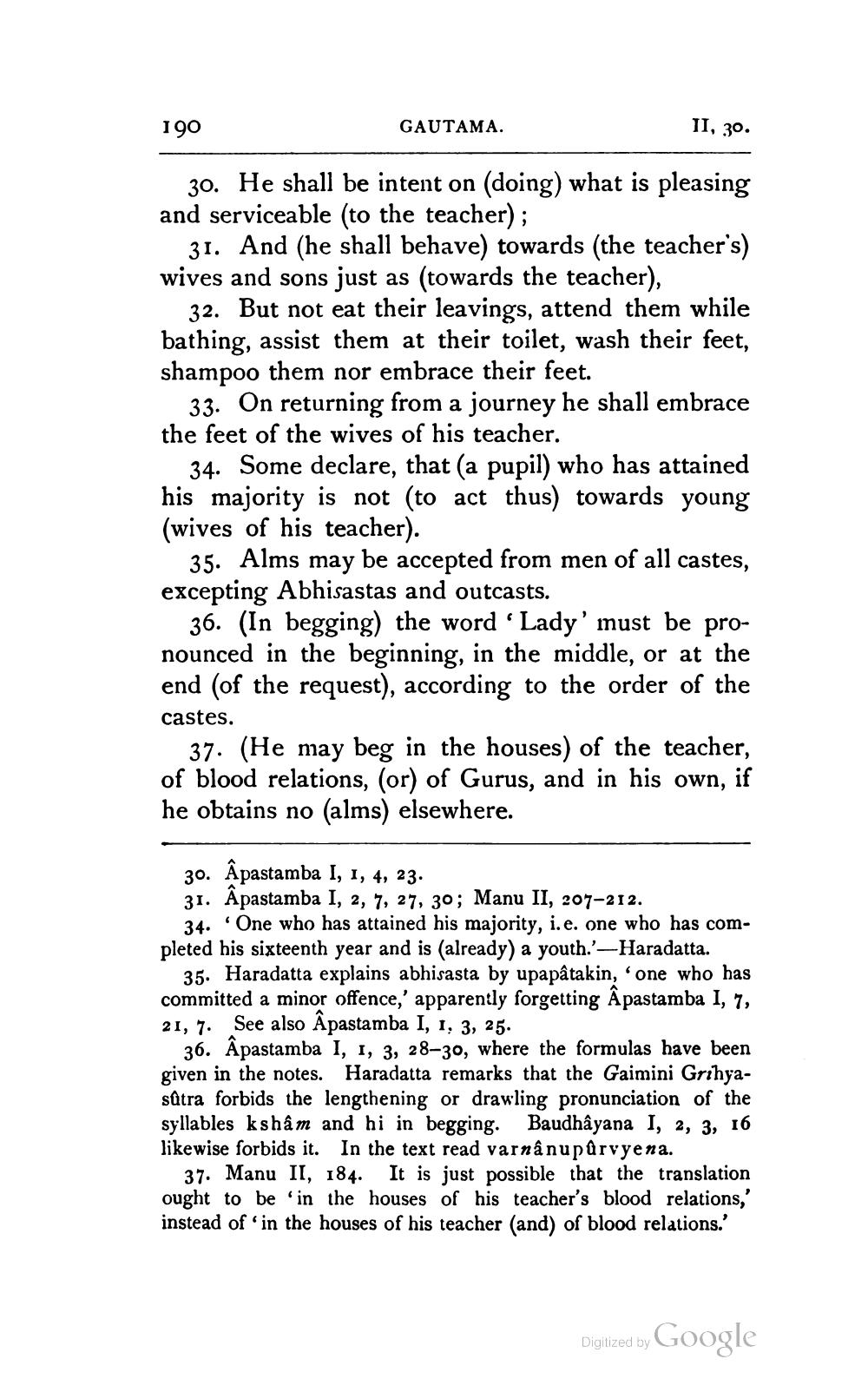________________
190
GAUTAMA.
II, 30.
30. He shall be intent on (doing) what is pleasing and serviceable (to the teacher);
31. And (he shall behave) towards (the teacher's) wives and sons just as (towards the teacher),
32. But not eat their leavings, attend them while bathing, assist them at their toilet, wash their feet, shampoo them nor embrace their feet.
33. On returning from a journey he shall embrace the feet of the wives of his teacher.
34. Some declare, that (a pupil) who has attained his majority is not (to act thus) towards young (wives of his teacher).
35. Alms may be accepted from men of all castes, excepting Abhisastas and outcasts.
36. (In begging) the word 'Lady' must be pronounced in the beginning, in the middle, or at the end (of the request), according to the order of the castes.
37. (He may beg in the houses) of the teacher, of blood relations, (or) of Gurus, and in his own, if he obtains no (alms) elsewhere.
30. Âpastamba I, 1, 4, 23. 31. Apastamba I, 2, 7, 27, 30; Manu II, 207-212.
34. One who has attained his majority, i.e. one who has completed his sixteenth year and is already) a youth.'-Haradatta.
35. Haradatta explains abhisasta by upapatakin, one who has committed a minor offence,' apparently forgetting Âpastamba 1, 7, 21, 7. See also Âpastamba I, 1, 3, 25.
36. Apastamba I, 1, 3, 28-30, where the formulas have been given in the notes. Haradatta remarks that the Gaimini Grihyasûtra forbids the lengthening or drawling pronunciation of the syllables kshâm and hi in begging. Baudhâyana 1, 2, 3, 16 likewise forbids it. In the text read varnânupûrvyena.
37. Manu II, 184. It is just possible that the translation ought to be in the houses of his teacher's blood relations,' instead of in the houses of his teacher (and) of blood relations.'
Digitized by Google




